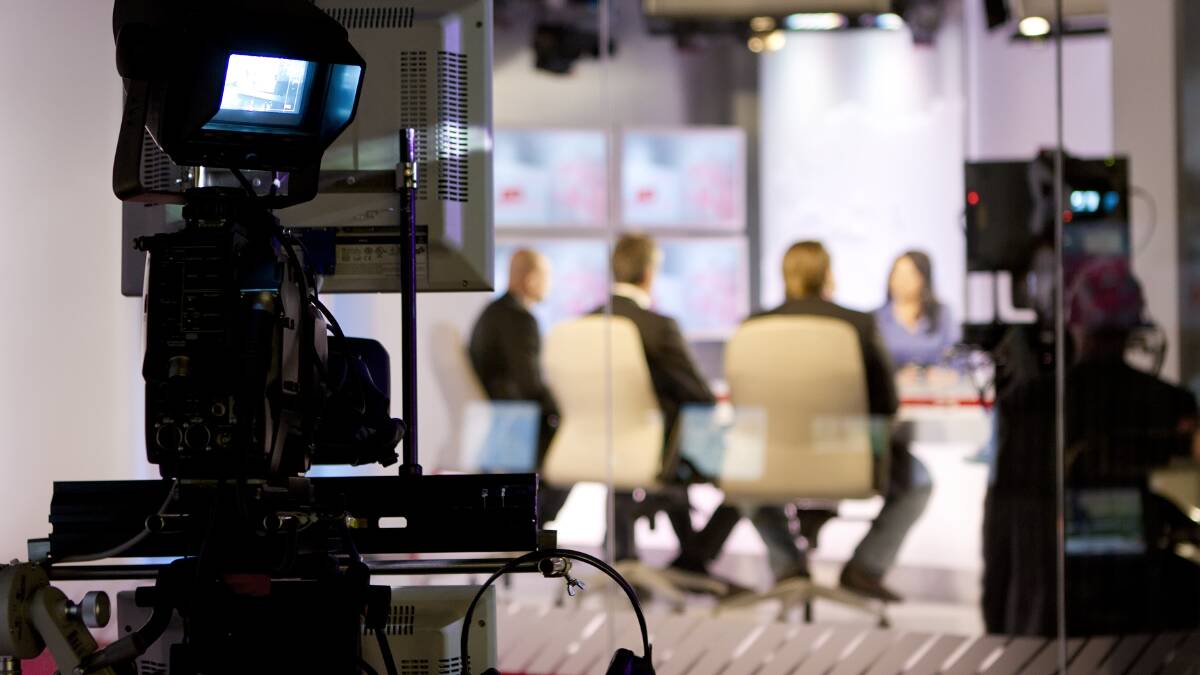
As a new student to journalism I was asked recently how I felt about entering an industry that is mostly dominated by white Anglo-Celtic men. To which my response was: how is it different to any other organisation I have worked for?
Subscribe now for unlimited access.
$0/
(min cost $0)
or signup to continue reading
I am an Indigenous-Australian, Gamilaroi and Anglo-Celtic woman, and I have worked in both government and private sector organisations since 1999. Although I have witnessed change in these industries, I am not surprised by Media Diversity Australia's recent findings of an astounding lack of Indigenous and non-European representation in television news and current affairs presenters and commentators, as detailed in the Who Gets to Tell Australian Stories? report.
I can't help but feel a tingle of excitement every time I see a product label that has changed its name, or dialogue being corrected for children's cartoons. For some it's tokenistic, but for me it is evidence that the wheel of change is slowly moving and proof that we are amidst a generational shift. These companies would not change their name unless they saw it as beneficial for business, so why is the mainstream media so slow on the uptake? People of all ethnicities are jumping behind the Black Lives Matter movement, and I am loving the energy and tenacity of those involved.
I was working for the Aboriginal and Torres Strait Islander Commission (ATSIC) in 2000 when I first came across the Royal Commission into Aboriginal Deaths in Custody's 1991 report, and I became sickeningly aware of the disparity that exists between Indigenous and non-Indigenous Australia. Yet I have always been full of hopeless optimism and determined to make a difference.
I don't just want to see [Indigenous] journalists on Indigenous programs, I want to see them everywhere.
I am now 20 years into my working life and I have seen the emergence of many new policies and programs frequently lacking in community engagement, yet ignorantly promising to improve outcomes for Indigenous Australians. Very little has changed.
It's 2020 and I am still seeing divisive journalism on programs such as Sunrise and Today, inciting hateful and negative attitudes toward our black communities. I repeatedly see old privileged white men being given a platform to share their outdated racist views, ranting about freedom of speech, yet our Aboriginal people's voices are being watered down to suit an outdated mainstream agenda. According to the 2016 census, 26 per cent of our population was born overseas, while 49 per cent were either born overseas or had a parent that was. Despite this, there were no Indigenous or non-European presenters on mainstream television in the Northern Territory, South Australia and Tasmania.
I grew up being proud of my black grandmother Lorna Sampson and my ancestry, yet as a fair-skinned Aboriginal-Australian woman, I am not discriminated against for the colour of my skin - unlike my cousins, aunties and uncles. In my career of 20 years, I have heard all of the generalisations, stereotypes and racial slurs, the stuff people say when they don't realise they are in the room with an Aboriginal person.
In recent years I have had my own identity challenged by media commentators like Andrew Bolt and others of that generation with outdated opinions, who are merely grasping at straws to remain relevant, desperately seeking controversy for attention, and soaking in their ever-dimming limelight. The world is changing and they know it.
READ MORE:
The report also surveyed industry professionals, and interestingly those under 35 responded more negatively to how diversity is represented in the media, while those over 64 falsely believed they were doing an OK job.
I have faith that these attitudes will slowly fade away and will be replaced by fairer representation of society in the mainstream media with more balanced and unbiased reporting.
In the era of "fake news", we are now more than ever seeing the power of information, disinformation and the impact every journalist can make. With the ABC, SBS and NITV leading the way in representing the diversity that is Australia, we need to ensure we are supporting these programs and maintaining integrity with our reporting. There is so much misinformation out there that I feel a moral obligation to be involved in improving and updating the industry, which is why I am eager to get involved and am training to become a journalist. There are a number of incredible Indigenous journalists who you may not see or read about on mainstream news sites, but they are passionate about reporting the truth and will not stand down on issues concerning our people.
I don't just want to see these journalists on Indigenous programs, I want to see them everywhere. The report also found that organisations who embrace diversity see greater success than their counterparts, and it made some significant recommendations which reflect a similar focus to many government organisations' Reconciliation Action Plans. The development of such a plan for the mainstream news media will be a step forward, but we are unlikely to see the change we desperately seek until diversity is truly valued and placed as a priority - as opposed to just another box to be ticked.
- Jess Whaler is a Bachelor of Communication and Media (Journalism) student at the University of Canberra and a proud mother of four.

